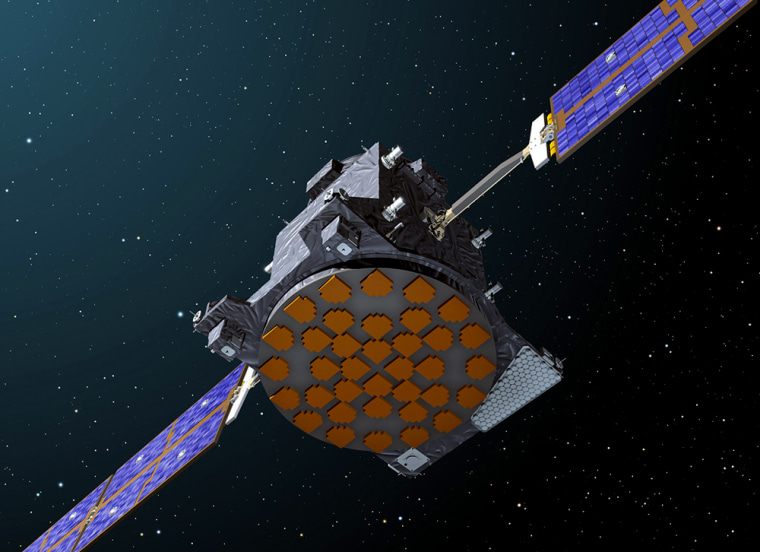The first of 30 satellites of the European Union's Galileo satellite navigation program was unveiled Wednesday, one month before it will be launched into space.
The "Giove A" satellite will be launched in the second half of December by a Russian Soyuz rocket from the Baikonur Cosmodrome in Kazakhstan. "Giove" is an acronym standing for Galileo In-Orbit Validation Element.
"This is a big step in the history of Galileo," said EU Transport Commissioner Jacques Barrot. "The program will now truly begin with the launch of this first satellite."
The satellite was unveiled at a brief ceremony at the European Space Research and Technology Centre in Noordwijk, the Netherlands. A second satellite named "Giove B" will be launched next spring.
The first two satellites are important for testing the Galileo program from space, the European Space Agency said in a statement.
Two more satellites will be launched in 2008 to complete a testing phase that requires at least four satellites in orbit to guarantee an exact position and time anywhere on earth.
When finished, the $4.3 billion Galileo project will comprise 30 satellites and should end Europe's reliance on the Global Positioning System, or GPS, which is ultimately controlled by the U.S. military. The Galileo program will be under civilian control.
Six non-EU nations — China, India, Israel, Morocco, Saudi Arabia and Ukraine — have already joined the program, and discussions are also under way with Argentina, Brazil, Mexico, Norway, Chile, South Korea, Malaysia, Canada and Australia.
The EU will soon allocate an initial $1.2 billion from its 2007-2013 budget to fund deployment and commercial operations of the Galileo satellite system. The private sector will contribute two-thirds of funds for the project, which is expected to create more than 150,000 jobs in Europe alone.
Galileo will more than double the coverage of GPS, providing satellite navigation for a wide range of people from motorists to sailors to mapmakers.
